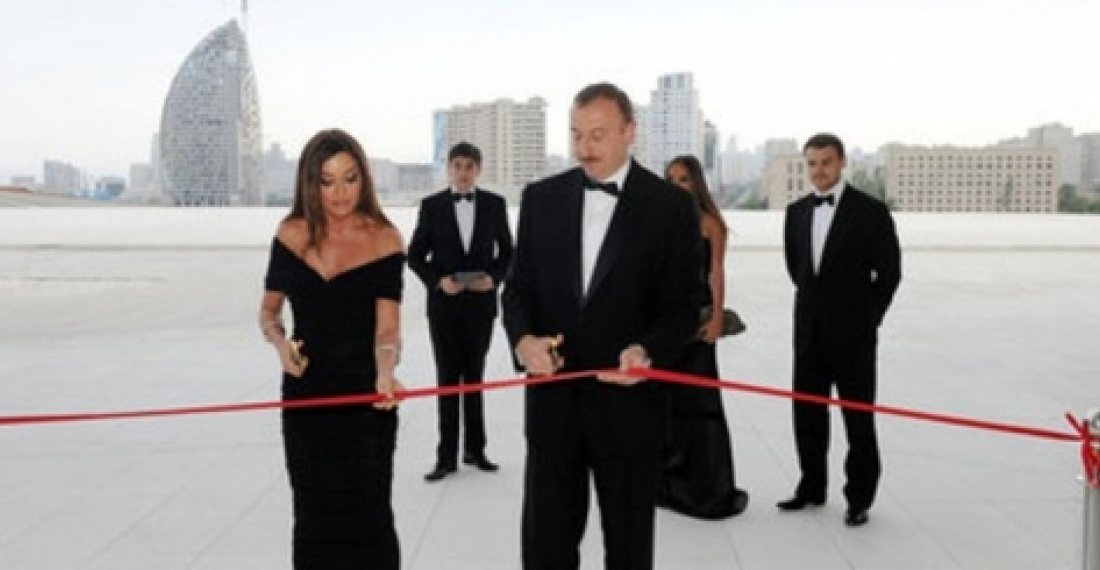A frenzy of construction activity in the Azerbaijani capital Baku is starting to bear results. The President of Azerbaijan, Ilham Aliev, accompanied by his wife and family, yesterday opened the new Heidar Aliev Centre, set to become one of the cities iconic landmarks. The President said that the state-of-the-art center was multifunctional. He thanked architect Zaha Hadid, who designed the complex, and those who contributed to the construction of the complex.
In a speech at the opening ceremony Aliev said “Our capital, which represents a mix of ancient times and modernity, has many landmarks. And now we have build new landmarks of modern Baku, including the Seaside National Park, National Flag Square, Flame Towers, Crystal Palace and finally the Heydar Aliyev Center.”
The new buildings are expected to play a part in the Eurovision Song Festival scheduled to be held in the Azerbaijani capital at the end of this month. Azerbaijan has put a lot of effort in the organisation of the festival, the biggest international event it has ever hosted.
The event however has also been caught in controversy as human rights groups highlight Azerbaijan's poor record in the field of human rights and freedom of speech. There were some isolated calls for the festival to be boycotted. Other groups however have argued that the festival should go ahead and the occasion should be used to focus on the situation in the country.
Editorial Note: A special feature "Azerbaijan's parallel worlds" will be published on commonspace.eu next week
source: commonspace.eu
Photo: President Ilham Aliev, accompanied by his wife, Mehraban Alieva, opening the new Heidar Aliev Centre in Baku on 10 May 2012. (picture courtesy of the Press Service of the president of Azerbaijan)







